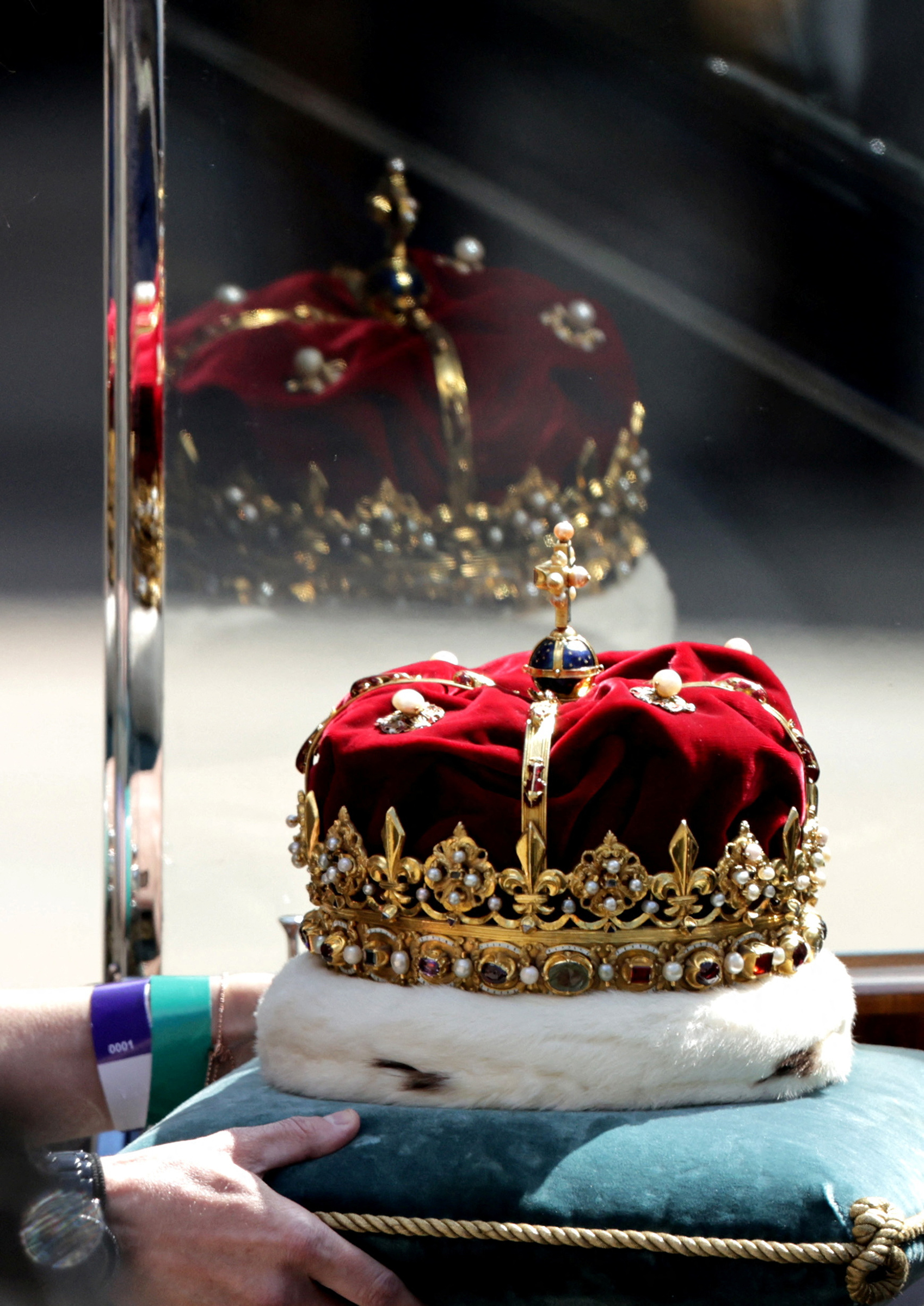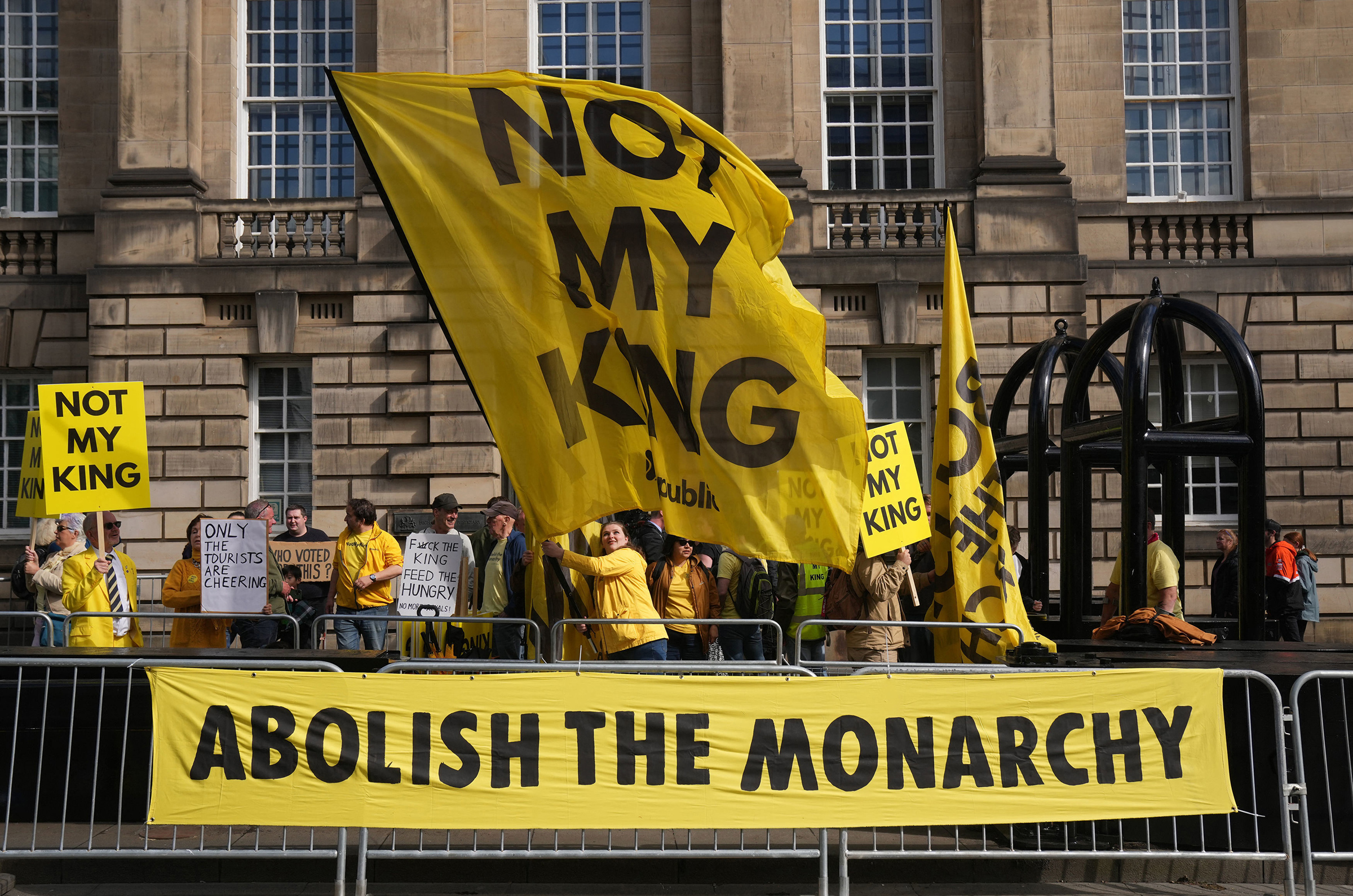On Wednesday, July 5, Scotland will welcome King Charles III with a royal procession during the annual Holyrood Week—also known as Royal Week—where the British monarch travels across the region to celebrate Scottish life, culture, and community.
This will be the first time that Scotland marks the coronation with its own royal festivities since Charles was crowned at London’s Westminster Abbey in May to mark his ascension to the royal throne following the death of his mother, Queen Elizabeth II, last September.
King Charles and Queen Camilla will take part in several ceremonial events and be joined in Edinburgh by Prince William and Kate, who serve the Scottish titles of the Duke and Duchess of Rothesay.
“Scotland will welcome the new King and Queen in July with a series of events to mark the Coronation,” First Minister Humza Yousaf said in an official statement. “A People’s Procession, a Royal Procession, a National Service of Thanksgiving, and a Gun Salute will take place in Edinburgh.”
Read More: Do Brits Still Want the Monarchy? What Polls Say Ahead of Charles’ Coronation
Colloquially referred to as a “second coronation,” the ceremony at St Giles’ Cathedral is largely symbolic and is not officially a coronation. The event mirrors a Scottish celebration Queen Elizabeth II held in 1953, when she traveled there to recognize Scotland’s historic place within the United Kingdom.
Below, what to know about the so-called Scottish coronation.

The full schedule for King Charles’ Scottish coronation celebration
The day’s events officially kick off at 1:15 p.m., when the Royal Procession will travel from the Palace of Holyroodhouse to the St. Giles’ Cathedral, arriving at West Parliament Square at 1:30 p.m.
At 2:05 p.m., the King and Queen will lead the royal procession and be followed by the Duke and Duchess of Rothesay. They will be escorted by the Royal Regiment of Scotland and accompanied by the Royal Marine Band of Scotland and the Pipes, Drums, and Bugles of the 2nd Battalion.
A National Service of Thanksgiving will then begin at 2:15 p.m. and be held at the Cathedral, where the new King will be presented with the Honours of Scotland, including a second crown.
The service is expected to end around 3:15 p.m. with a 21-gun salute from the 12 Regiment Royal Artillery, which will sound before the royal procession returns to Holyroodhouse around 3:30 pm.
The Red Arrows, Britain’s Royal Air Force Aerobatic Team, will celebrate the closing of the ceremony with a display in the Edinburgh sky at 3:40 p.m. The public is expected to line up along the Royal Mile to view the procession.

What are the Honours of Scotland?
The Honours of Scotland are the most important pieces of the Scottish royal regalia and include a crown, scepter, and sword made of gold, silver, and precious gems. They are currently stored away at Edinburgh Castle and will be escorted to the royal procession by military and police.
Dating back to the early 16th century, the Crown of Scotland was first worn by King James V of Scotland at the coronation of nine-month-old Queen Mary of Guise in 1540. The Honours were locked away in a chest when the English and Scottish Parliaments united under the Act of Union of 1707, which brought together the independent kingdoms of England and Scotland under Great Britain. They were rediscovered in 1818 by the famous novelist Walter Scott.
During Wednesday’s ceremony, the Stone of Scone, also known as the Stone of Destiny, which was used as a seat in the coronation of Scottish kings for centuries, will also be present. It was last carried down to London from Scotland during King Charles’ coronation at Westminster Abbey in May.
Notably, a new Sword of State called The Elizabeth will be presented to the King as a “symbol of Scotland.” The sword was commissioned to replace the original Sword of State, also known as the Papal sword, which is believed to be a papal gift from Pope Alexander VI to King James IV in 1494. The original sword can no longer be used at public events because of its delicate condition.
Read More: The Long and Controversial History of the Coronation Crowns
“The Honours of Scotland have immense historical significance, having been present at many major ceremonial events over the past five hundred years,” Humza Yousaf said in his statement. “Designed and crafted with care by some of Scotland’s finest artisans, the Elizabeth Sword is a fitting tribute to the late Queen as Scotland prepares to welcome the new King and Queen next week.”
Most recently, the Scottish Crown was placed on Queen Elizabeth’s coffin during a service at St Giles’ Cathedral before her funeral last September.

Is there any opposition to the event?
Republic, an anti-monarchist campaign group, will be protesting along the planned procession route. “Charles is having ANOTHER Coronation, this time in Edinburgh. Another pointless parade, another reckless waste of public money. So, of course, we’ll be protesting it,” it stated on its website.
Our Republic, another campaign group advocating for an elected head of state, is also planning to hold a demonstration.
Scottish authorities have reportedly launched security operations to prevent the anti-monarchy groups from disrupting the procession. During Charles’ coronation in May, British police arrested six individuals under the Public Order Act, a law to restrict protests that came into force days before the coronation. The arrests were heavily criticized for their heavy-handed security response, with the police later expressing regret and that those arrested would not face criminal prosecution.
Correction, July 5
The original version of this story referred to Wednesday’s event as a “second coronation.” Although it is colloquially referred to as a “second coronation,” King Charles’ official coronation took place in London on May 6.
More Must-Reads from TIME
- The Reinvention of J.D. Vance
- Iran, Trump, and the Third Assassination Plot
- Welcome to the Golden Age of Scams
- Did the Pandemic Break Our Brains?
- 33 True Crime Documentaries That Shaped the Genre
- The Ordained Rabbi Who Bought a Porn Company
- Introducing the Democracy Defenders
- Why Gut Health Issues Are More Common in Women
Write to Astha Rajvanshi at astha.rajvanshi@time.com